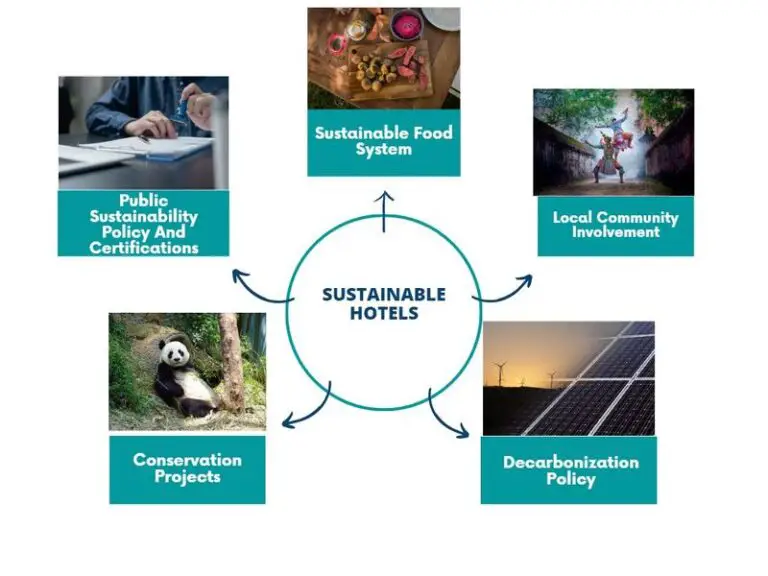Zero-waste travel aims to minimize the waste travelers produce during their trips. It seeks to create no waste and involves conscious choices regarding packing, accommodation, transportation, dining, and other travel-related activities.

The Real Meaning of Zero Waste Travel
Zero-Waste travel is the conscious effort to minimize or eliminate waste generation while traveling. It involves making mindful choices in every aspect of traveling. However, the ultimate goal is not to be perfect but to make the best effort to minimize waste production during the journey.
Zero-waste traveling encourages travelers to:
- Reduce waste generation
- Research waste-conscious accommodations, restaurants, and activities to ensure sustainable choices.
- Properly dispose of waste and recycle when possible, adhering to the “leave no trace” principle.
- Share experiences and knowledge with others to raise awareness and promote sustainable tourism.
Zero Waste Travel Strategies
Everything Starts with a Bookings – How to Reduce Your Waste while in Transit

Choose the right flight company or travel tours company
Researching tour operators, airlines, and other transportation companies with solid waste reduction policies is crucial.
Most airlines and travel tour companies have dedicated pages outlining their sustainability initiatives, waste reduction efforts, and environmental policies. Proactively look for companies certified by recognized sustainable tourism organizations. Look at their in-flight waste reduction efforts; some airlines, for example, have replaced single-use plastic items with eco-friendly alternatives or reduced disposable product use. Research operators that prioritize local and sustainable accommodations, activities, and dining options for travel tours. Online reviews and testimonials can offer valuable insights into a company’s sustainability practices. Look for feedback from other travelers who have experienced the company’s services and can vouch for their commitment to waste reduction and sustainability. You can also contact companies with questions or concerns about their sustainability initiatives.
Then You Start Packing for Your Trip

Use digital documents
Using digital documents while traveling is a simple yet effective way to reduce waste production. Use digital boarding passes, train or bus tickets, and travel itineraries to eliminate the need for printing physical copies; physical documents like paper tickets and boarding passes often end up in trash bins or, worse, as litter. Furthermore, printing documents require ink, which usually contains chemicals that can harm the environment.
Take reusable items with you for eating and toiletries
Taking reusable items with you during travels is an effective way to reduce waste production. Single-use plastics, such as cutlery, water bottles, and bags, are a significant source of pollution. Disposable items, especially plastics, often litter natural environments or oceans, harming wildlife and ecosystems.
Top Tips: reusable items to bring while traveling

Eating:
- Reusable water bottle
- Travel mug
- Reusable cutlery set
- Cloth napkins
- Reusable food containers
- Reusable shopping bags

Toiletries:
- Solid shampoo and conditioner bars
- Bar soap
- Bamboo toothbrush
- Reusable razor
- Menstrual cups or reusable pads
- Reusable travel-sized containers
Ways to Reduce Waste When You Are at Your Destination
Take only the informational materials that you need
Only take necessary brochures, leaflets, or other promotional materials at tourist attractions. Use digital alternatives or take a photo of the information for later reference.
Dispose of waste properly and leave no trace
Always throw your trash in designated bins, and recycle when possible. If recycling facilities are unavailable, consider taking your recyclable waste to dispose of it properly in a location with proper recycling infrastructure. Follow the “leave no trace” principles when exploring natural areas, ensuring you don’t leave any waste behind. Learning about local waste management practices, recycling options, and eco-friendly initiatives is a great tip.
Zero waste dining & shopping tips

Zero-waste dining tips:
- Bring the reusable cutlery set, cloth napkin, and straw you packed in your luggage.
- Refill the reusable water bottle instead of buying single-use plastic bottles. Many restaurants, cafes, and public spaces offer refill stations.
- Opt for eateries that prioritize waste reduction, such as using reusable or compostable tableware and implementing food waste reduction strategies.
- If you cannot finish your meal, use the reusable container to take leftovers, minimizing food waste and avoiding disposable containers.
- Be conscious of portion sizes and only order what you can finish minimizing food waste. Share dishes with your travel companions if necessary.
Zero-waste shopping tips:
- Bring reusable shopping bags to avoid using single-use plastic bags when purchasing groceries or souvenirs.
- Opt for products made from eco-friendly, biodegradable, or recycled materials, and avoid items made from single-use plastics or non-sustainable materials.
- Opt for products with minimal or eco-friendly packaging. If possible, request the seller to avoid excessive packaging or plastic bags.
How to Choose Zero-Waste Souvenirs

Choosing souvenirs is an integral part of traveling. Tourists need to help and support local economies, but the potential environmental impact of souvenirs is also important. It is essential, when choosing souvenirs, to be mindful that they produce as little waste as possible.
Here are some tips for choosing your souvenirs:
- Support local artisans and businesses by purchasing souvenirs made in the region you’re visiting.
- Look for souvenirs from eco-friendly, biodegradable, or recycled materials like bamboo, wood, organic cotton, or recycled metals.
- Local food items, like spices, tea, coffee, or chocolates, can be excellent zero-waste souvenir options if packaged in reusable, recyclable, or compostable materials.
- Choose souvenirs that serve a functional purpose and have a longer lifespan, such as reusable bags, kitchen utensils, or textiles. These items are more likely to be used and cherished rather than ending up as waste.
- Consider buying experiences like a cooking class, guided tour, or a day at a local spa instead of tangible souvenirs.
- Photos, videos, or a travel blog can serve as waste-free souvenirs that capture the essence of your trip without any environmental impact.
- Opt for souvenirs with minimal or eco-friendly packaging, like paper, cardboard, or fabric wraps, to reduce waste. If possible, request the seller to avoid excessive packaging or plastic bags.
- Look for one-of-a-kind, handmade items that reflect the culture and traditions of the destination. These souvenirs often have a lower environmental impact compared to mass-produced products.
- Choose souvenirs from companies that follow fair trade and ethical practices, ensuring artisans receive fair compensation for their work and products are made using sustainable methods.
Keep the Zero Waste Mentality – Follow The 3 Rs

Reduce, Reuse, and Recycle philosophy is the foundation of a sustainable and eco-friendly lifestyle and can be applied to travel.
Reduce:
- Consume less
- Minimize food waste
- Avoid single-use items
Reuse:
- Pack reusable items
- Choose refillable toiletries
- Use multi-purpose items
Recycle:
- Familiarize yourself with local recycling practices
- Separate waste
- Support businesses that recycle
- Buy recycled products
Conclusions
Zero waste travel isn’t just a trend; it’s a necessary shift in how we experience our trips and holidays. We can significantly reduce our environmental footprint by making conscious choices throughout our journeys, from packing to dining.
This approach ensures that the beautiful destinations we love remain unspoiled and promotes a culture of sustainability and awareness wherever we go.
We can make a difference by supporting local artisans, choosing eco-friendly accommodations and transportation, using reusable items, and adhering to the 3 Rs.
We encourage all our readers to comment below with their personal experiences, tips, and insights.
It would be great if you could consider sharing this article on your social media platforms. By doing so, you’re spreading the word about sustainable travel and motivating others to make responsible choices.
Every small step counts. Safe travels, and may your journeys always leave a positive mark, not a trace!



